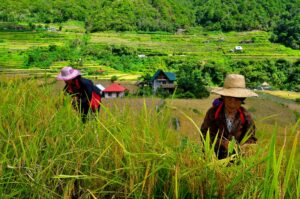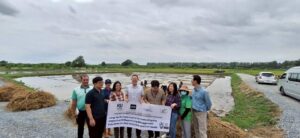Empowering women farmers has been linked to gaining food security, decreasing poverty, and fighting climate change.
Given the same education and training as their male counterpart, women farmers’ production could increase by 30%, which could help meet the food needs of about 150 million people.
The five countries where women are a significant driving force in agriculture are:
Pakistan
Agriculture employs 74% of employed women but it is likely that there are even more who work informally in agriculture.
Tanzania
In Tanzania, 70% of employed women work in the agriculture sector, more than in any other sub-Saharan country.
The Gambia
Across the country, 38% of employed women work in the agriculture sector, the most important sector in Gambia’s economy.
Sri Lanka
Because more men are leaving farming in favor of working in cities, more women are bearing the responsibility of farming. The sector employs
34% of employed women work in agriculture.
Turkey
More women are taking over the operation of family farms across the country as more men begin working in other industries. Currently, 32% of employed women work in agriculture.
Read the full story at Global Citizen
More on women in agriculture:
Training of women farmers enhances the adoption of new agricultural technologies
A recent study concluded that incentivizing farmers in general—and female farmers in particular—can serve as a potential means to adopt agricultural technologies that have the potential to boost rural economy and enhance food security.
Rural women in Myanmar reap the benefits of sustainable rice farming practices
A study on the impact of sustainable rice farming on rural women in Myanmar revealed that smallholder families who adopted best management practices experienced remarkable social and cultural changes in their livelihoods through higher yield and income.
A “GEM” for women rice processors in Benin
An improved rice parboiling system developed by the Africa Rice Center (AfricaRice), combined with training and the adoption of an innovation platform approach along the rice value chain, is starting to make a difference in the lives of more than 450 women in the Glazoué rice hub in central Benin. It shortens processing time, reduces drudgery, and does not expose the women parboilers to heat burns







